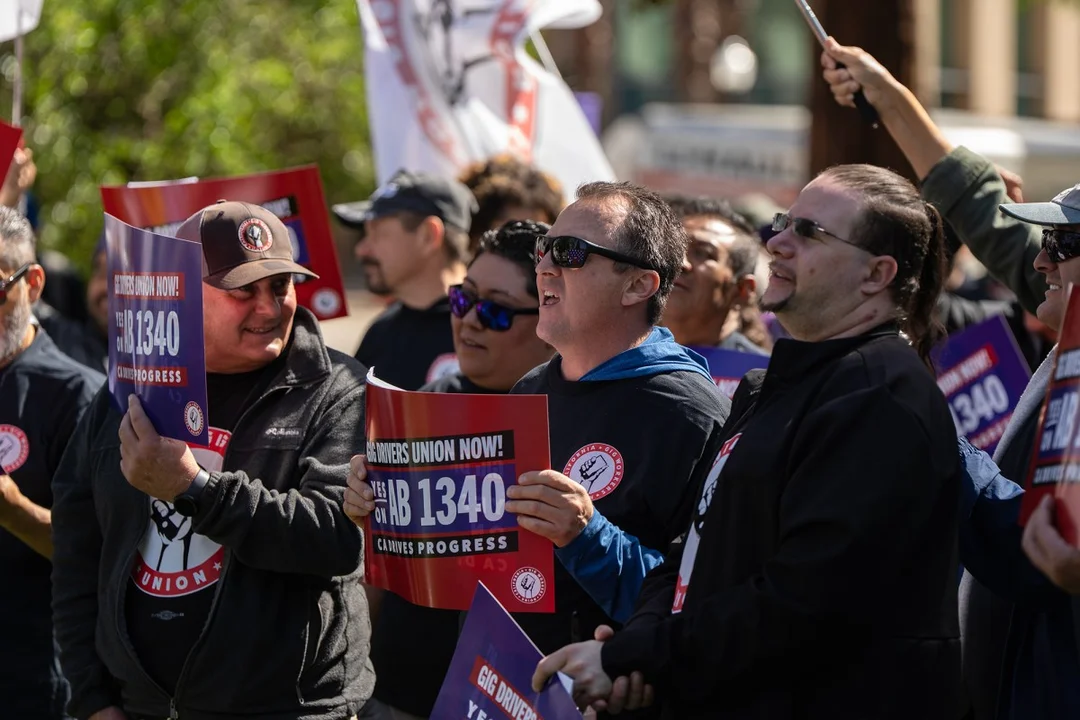
California Lawmakers Push Bold Proposal to Let Uber and Lyft Drivers Unionize
In a landmark move with potential ripple effects across the gig economy, California lawmakers are championing a new bill that would allow ride-hailing drivers for companies like Uber and Lyft to form unions and collectively bargain for better pay and benefits. The legislation, Assembly Bill 1340, introduced by Assemblymember Buffy Wicks (D-Oakland) and Marc Berman (D-Menlo Park), marks a renewed effort by labor advocates after years of contentious battles with gig economy giants and is seen as a significant step toward expanding rights for more than 600,000 drivers statewide.

The push for unionization comes as drivers, labor unions, and lawmakers voice growing frustration over current conditions. "We stand for the principles that all work has dignity. We stand for the right of every worker to truly have a voice," Assemblymember Wicks declared at a recent press conference. Supported by the Service Employees International Union (SEIU) California, the initiative would, for the first time, grant drivers as independent contractors the ability to negotiate compensation and working conditions, bypassing both federal and state antitrust restrictions.
Notably, AB 1340 is being unveiled against a backdrop of hard-fought labor disputes. In 2020, voters passed Proposition 22, a ballot measure heavily advocated by Uber, Lyft, DoorDash, and Instacart after companies spent over $200 million in its support—more than ten times the opposition's expenditure. Prop 22 classified drivers as independent contractors, keeping them outside the scope of traditional employee protections like unemployment benefits and a statutory minimum wage. Although it promised better benefits and pay, many drivers have argued outcomes did not live up to those assurances. "Now, we are just their money makers. This is why we love to have a union," said Francisco Magdaleno, a nine-year ride-hail driver from Los Angeles. "I want us drivers to be able to negotiate, to make things better for everybody."

Companies, unsurprisingly, have voiced strong objections to the proposal, warning of higher costs for riders and a threat to the flexible work arrangements drivers value. "Drivers have been clear: They want to stay independent and keep the freedom to choose when and how they work, with access to meaningful benefits," an Uber spokesperson emphasized. Lyft representatives pointed to Prop 22 as reflecting drivers’ preferred system, noting efforts to continuously “improve drivers’ experience.”
On the policy side, the path to collective bargaining involves complex questions still without clear answers—such as the process for union certification, eligibility, and minimum votes required. Some labor advocates, like Nicole Moore, president of Rideshare Drivers United, are calling for a stronger wage floor, contending that current guarantees—ranging from $5.64 to $27.58 per hour—are insufficient. “If you are going to call that a wage floor, it’s really a wage dungeon,” Moore argued, suggesting the new bill should set a higher bar.
California’s proposal is not alone: Similar initiatives have surfaced in Massachusetts, Minnesota, and Illinois, with mixed responses from platform companies. The legislative process is expected to bring more heated debate as Uber, Lyft, lawmakers, and labor advocates hash out the details in coming weeks.
Ultimately, the proposed law strikes at the core of gig work’s future—testing whether independent contractors can secure meaningful rights without upending the flexible model that defines the sector. As Lorena Gonzalez Fletcher of the California Labor Federation observed, “the right to collectively bargain...is far superior to nothing,” even if it falls short of full employee status. The Assembly will soon take up the measure, and all eyes will be on California as it again sets the pace for labor rights in the gig economy.
What do you think: Should app-based drivers have the right to unionize as independent contractors, or would such moves threaten the flexibility and affordability that defines gig work? Share your perspectives and join the debate in the comments below.